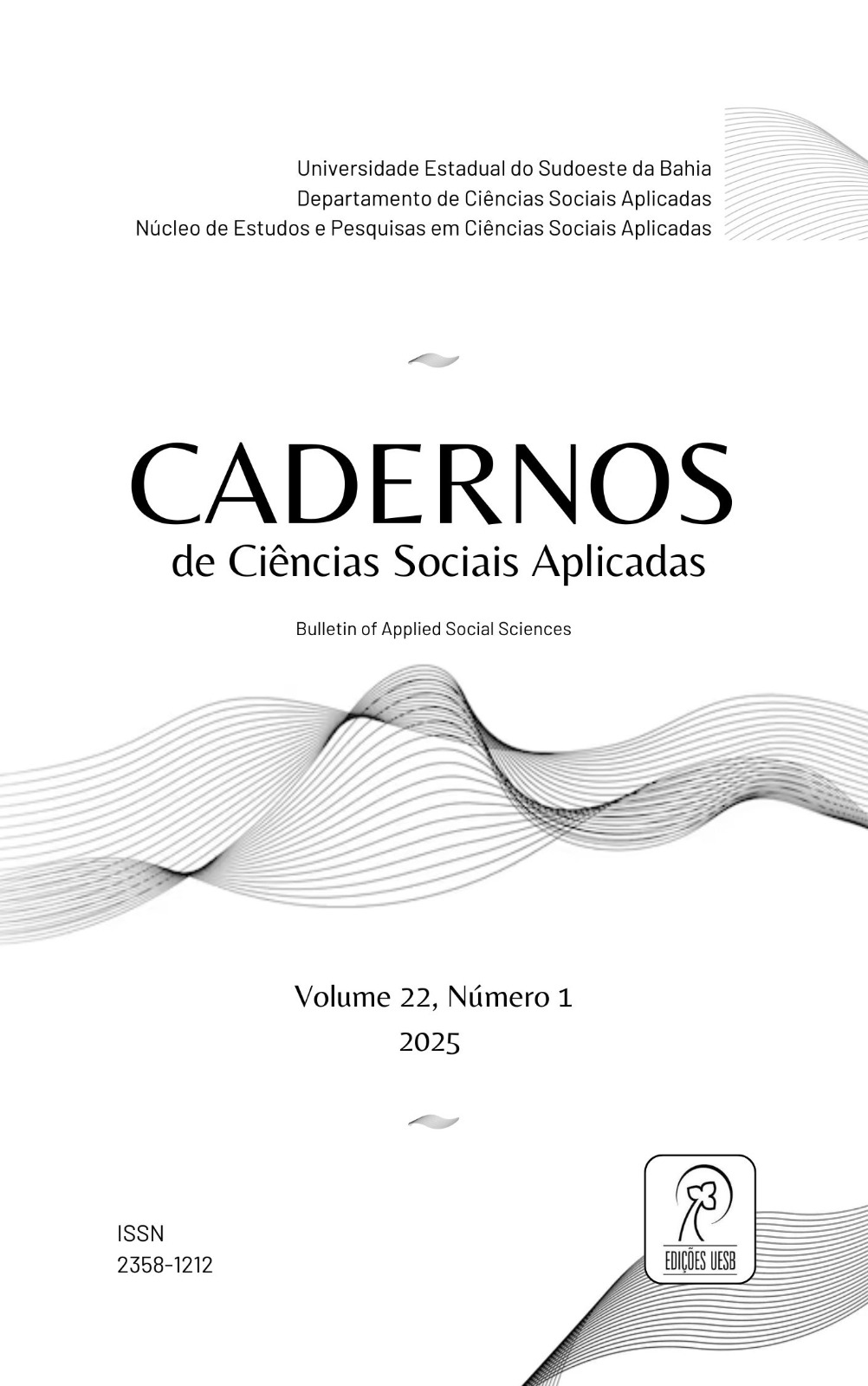Apresentação
DOI:
https://doi.org/10.22481/ccsa.v22i1.16661Keywords:
digital economy; economic politics; editorial.Abstract
This editorial offers a comprehensive overview of the tensions and opportunities at the intersection of the digital economy, labor rights, and economic governance. It begins by reflecting on the emergence of a new digital precariat, characterized by algorithmic management, flexible contracts, and challenges to fundamental rights, while also highlighting innovations in business models and relational marketing strategies. It then examines the role of institutions and public policies, from minimum‐price guarantees for basic‐goods baskets to levels of financial disclosure and the legacy of authoritarian growth, in promoting equity, trust, and sustainability. Throughout the text, the contributions in this issue are introduced: case studies, statistical analyses, and theoretical reviews that illustrate these dynamics across multiple contexts. The conclusion identifies future research avenues in comparative platform regulation, assessment of accountability mechanisms, and adoption of circular‐economy practices, inviting scholars and practitioners to collaborate in building a more just and efficient form of development.
Downloads
References
ACEMOGLU, Daron; JOHNSON, Simon; ROBINSON, James A. The colonial origins of comparative development: An empirical investigation. American Economic Review, v. 91, n. 5, p. 1369–1401, dez. 2001.BESLEY, Timothy; PERSSON, Torsten. The origins of state capacity: Property rights, taxation, and politics. American Economic Review, v. 99, n. 4, p. 1218–1244, set. 2009.CARNEGIE, Megan. Gig Workers Are Getting Crushed by the Review Mill. Wired, [S.l.], 15 dez. 2022. Disponível em: https://www.wired.com/story/gig-workers-algorithm-downranked. Acesso em: 8 jun. 2025. DUGGAN, James; JOOSS, Stefan. Gig Work, Algorithmic Technologies, and the UncertainFuture of Work. In: LYNN, Tim; ROSATI, Paolo; CONWAY, Eoin; VAN DER WERFF, Linda (eds.). The Future of Work. Cham: Palgrave Macmillan, 2023. p. 53–66. DUGGAN, James; SHERMAN, Ultan; CARBERY, Ronan; McDONNELL, Anthony.Algorithmic management and app-work in the gig economy: A research agenda for employment relations and HRM. Human Resource Management Journal, v. 31, n. 4, p. 839–852, 2021.PATHIRANAGE, H. Sameera; Precarious employment in the gig economy: understanding the roles of the employed poor.
Bergamo(2025)5Open Journal of Business and Management, v. 12, p. 2289–2311, 2024. PILATTI, Gustavo R.; PINHEIRO, Flavio L.; MONTINI, Alessandra A. Systematic Literature Review on Gig Economy: Power Dynamics, Worker Autonomy, and the Role of Social Networks. Administrative Sciences, Basel, v. 14, n. 10, p. 267, 2024. RICHIARDI, Matteo Guido; WESTHOFF, Leonie; ASTARITA, Caterina; ERNST, Ekkehard; FENWICK, Clare; KHABIRPOUR, Neysan; PELIZZARI, Lorenzo. The impact of a decade of digital transformation on employment, wages, and inequality in the EU: a “conveyor belt” hypothesis. Socio-Economic Review, ahead of print, 2025. RODRIK, Dani; SUBRAMANIAN, Arvind; TREBBI, Fabrizio. Institutions rule: The primacy of institutions over geography and integration in economic development. Journal of Economic Growth, v. 9, n. 2, p. 131–165, jun. 2004.
Downloads
Published
How to Cite
Issue
Section
License
Copyright (c) 2025 Cadernos de Ciências Sociais Aplicadas

This work is licensed under a Creative Commons Attribution 4.0 International License.












